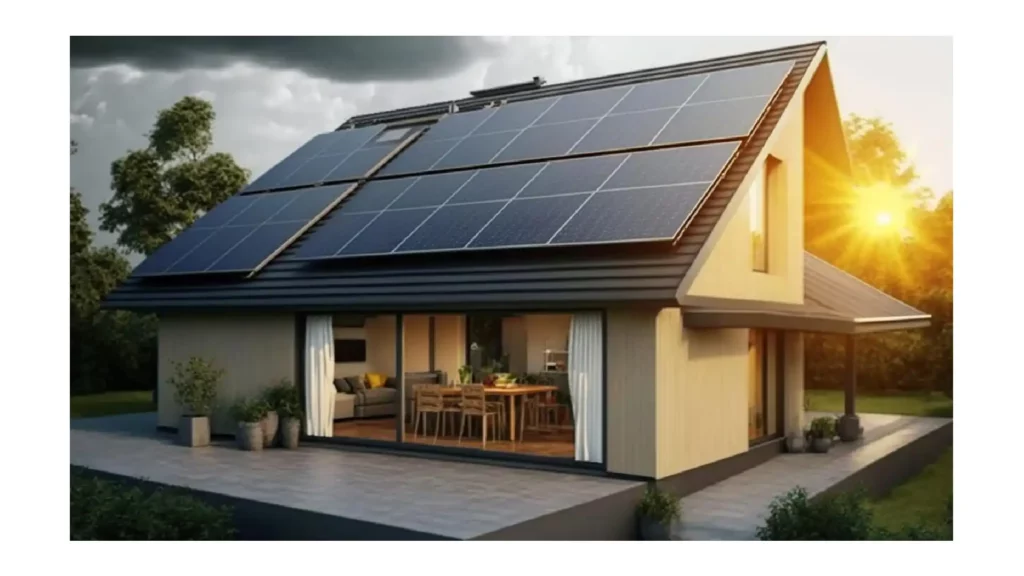In the ever-evolving landscape of renewable energy, solar power stands as a beacon of hope for a sustainable future. With advancements in technology, solar panels have become more efficient and powerful, offering greater energy production with smaller footprints.
Among these, the 370 watt solar panels emerge as a formidable contender, promising significant energy generation for residential and commercial applications alike.
In this guide, we delve deep into the realm of 370 W solar panels, exploring their features, benefits, installation considerations, and more.
Understanding 370 W Solar Panels
Before delving into the specifics, let's establish a foundational understanding of what exactly a 370 watt solar panels entails.
A 370 watt solar panels refers to a photovoltaic module capable of generating 370 watts of electricity under standard test conditions (STC).
These panels typically comprise numerous solar cells, usually made from crystalline silicon, which harnesses sunlight to produce electricity through the photovoltaic effect.
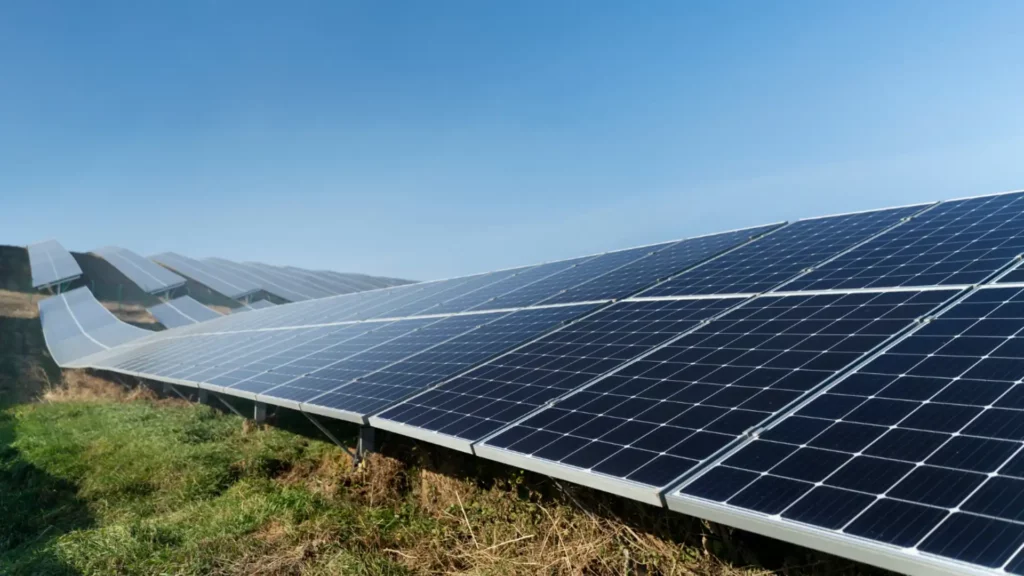
370W solar panel Specifications
Understanding 370w solar panel specifications is essential for assessing its performance and suitability for various applications.
Here's a brief overview of the key specifications:
- Maximum Peak Power (370W): This indicates the highest power output the solar panel can generate under standard test conditions (STC).
- Current at Peak (Ipmax) and Voltage at Peak (Vpmax): Ipmax is the current output at peak power, typically around 9.69 A for a 370 solar panel, while Vpmax represents the voltage output at peak power, approximately 38.34 Vdc.
- Maximum Surface Load: The panel can withstand a rear load of 4000 Pa (83.5 psi) and a front load of 5400 Pa (112.8 psi).
- Dimensions: The panel measures 1,795 x 990 x 38 mm (70.7 x 39.0 x 1.5 in.), providing a balance between size and power output.
- Weight: Weighing approximately 19 kg (41.9 lb), the panel is relatively lightweight, facilitating easier installation.
Benefits of 370 W Solar Panels
- Enhanced Energy Production: The primary advantage of 370 W solar panels lies in their higher wattage rating, allowing for greater energy generation per panel compared to lower-rated alternatives.
- Improved Efficiency: With advancements in solar technology, 370 W solar panels often boast higher efficiency ratings, meaning they can convert a greater proportion of sunlight into usable electricity.
- Space Optimization: Despite their higher wattage, 370 W solar panels are designed to maintain a compact form factor, optimizing space utilization on rooftops or other installation sites.
- Cost-Effectiveness: While initially, the upfront cost of 370 solar panel may be higher compared to lower-rated alternatives, their superior energy production capabilities often result in greater long-term cost savings.
- Environmental Benefits: Like all solar panels, 370W variants contribute to reducing greenhouse gas emissions and dependence on fossil fuels, thereby mitigating climate change and promoting environmental sustainability..

Exploring the Grape Solar 370-Watt Monocrystalline Solar Panel
The Grape Solar 370-Watt Monocrystalline Solar Panel is a top choice for solar energy solutions. Its high wattage and monocrystalline build ensure superior efficiency for residential and commercial use.
The Grape Solar 370-Watt Monocrystalline Solar Panel uses advanced technology to maximize energy production and space utilization on rooftops or ground-mounted arrays.
Whether powering homes, businesses, or off-grid installations, the Grape Solar 370-Watt Monocrystalline Solar Panel delivers reliable, sustainable energy generation for a brighter, cleaner future.
370 W solar panels Installation Considerations
- Roof Suitability: Before installing 370 W solar panels, it's crucial to assess the suitability of the roof or mounting structure. Factors such as orientation, tilt angle, shading, and structural integrity must be considered to optimize energy production and ensure the panels' longevity.
- Electrical Compatibility: Integrating 370 W solar panels into existing electrical systems requires careful consideration of compatibility and safety standards. This may involve upgrading inverters, electrical wiring, and other components to accommodate the increased power output of the panels effectively.
- Permitting and Regulations: Obtaining necessary permits and adhering to local building codes and regulations are essential steps in the solar panel installation process. Compliance with zoning ordinances, setback requirements, and aesthetic guidelines may impact the placement and configuration of 370 W solar panels.
- Professional Installation: Given the technical complexity and safety considerations involved, it's advisable to enlist the services of certified solar installers for the deployment of 370 W solar panels.
- Maintenance and Monitoring: Regular maintenance and monitoring are vital for maximizing the efficiency and longevity of 370 W solar panels. This includes cleaning the panels to remove dirt and debris, inspecting for any signs of damage or degradation, and monitoring energy production to identify potential issues promptly.
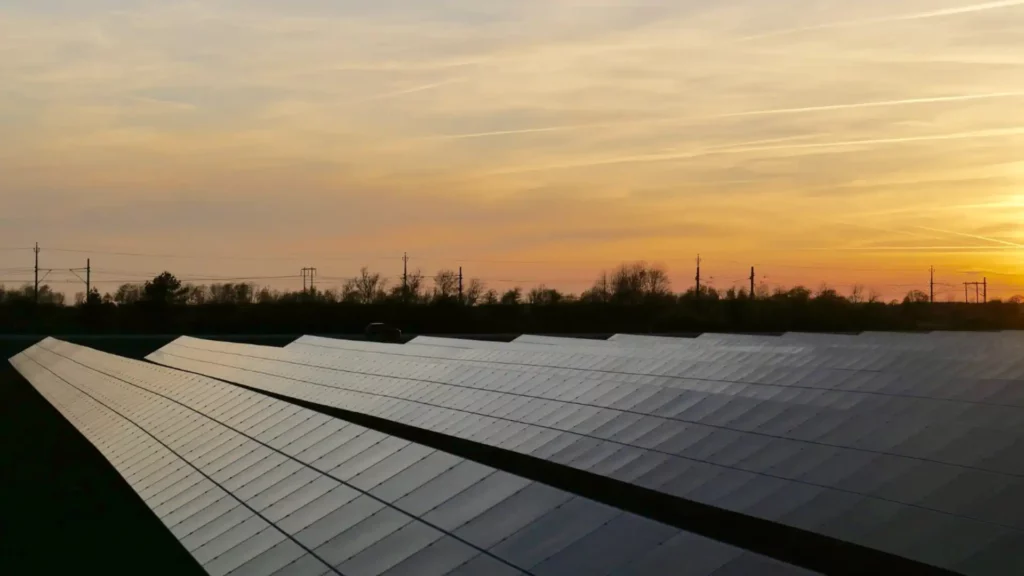
Comparing 370 W Solar Panels with Other Options
When considering the adoption of solar energy efficiency, it's essential to evaluate various solar panel options to determine which best suits your needs.
Below, we compare 370 W solar panels with lower and higher wattage alternatives, highlighting key differences in energy production, efficiency, and cost-effectiveness.
370W vs. 300W Solar Panels:
- Energy Production: 370 W solar panels offer a higher wattage rating compared to 300W panels, resulting in greater energy production per panel. This translates to increased electricity generation, making 370 W panels more suitable for applications where maximizing energy output within limited space is crucial.
- Efficiency: While both panel types may utilize similar technologies, 370 W panels typically feature higher efficiency ratings, meaning they can convert a greater percentage of sunlight into usable electricity. This heightened efficiency results in improved system performance and enhanced overall energy yield.
- Cost-Effectiveness: Although the upfront cost of 370 W panels may be slightly higher than that of 300W panels, their superior energy production capabilities often result in greater long-term cost savings. With higher efficiency and output, 370W panels can offset utility bills more effectively and provide a faster return on investment.
370W vs. 400W Solar Panels:
- Energy Production: While 370W panels offer substantial energy production capabilities, 400W panels boast an even higher wattage rating, resulting in slightly greater electricity generation per panel.
- Efficiency: Both 370W and 400W panels typically feature advanced technologies designed to maximize efficiency. However, the incremental increase in wattage with 400W panels may be accompanied by slight improvements in efficiency, further enhancing overall system performance and energy yield.
- Cost-Effectiveness: The cost difference between 370W and 400W panels may vary depending on factors such as brand, technology, and market conditions. While 400W panels may command a slightly higher price tag upfront, their increased energy production capabilities may justify the investment.
370W vs. Thin-Film Solar Panels:
- Energy Production: Thin-film solar panels typically have lower wattage ratings compared to crystalline silicon panels like the 370W variant. While thin-film technology offers advantages such as flexibility and lightweight design, it generally yields less energy per unit area, making it less suitable for applications where space efficiency and high energy output are critical.
- Efficiency: Crystalline silicon panels, including 370W variants, typically exhibit higher efficiency ratings compared to thin-film alternatives. The superior efficiency of crystalline silicon technology contributes to better overall system performance and energy yield, especially in regions with high solar irradiance.
- Cost-Effectiveness: While thin-film solar panels may offer cost advantages in terms of manufacturing and installation, their lower energy production capabilities and efficiency may result in reduced long-term cost-effectiveness compared to crystalline silicon panels like the 370W variant.
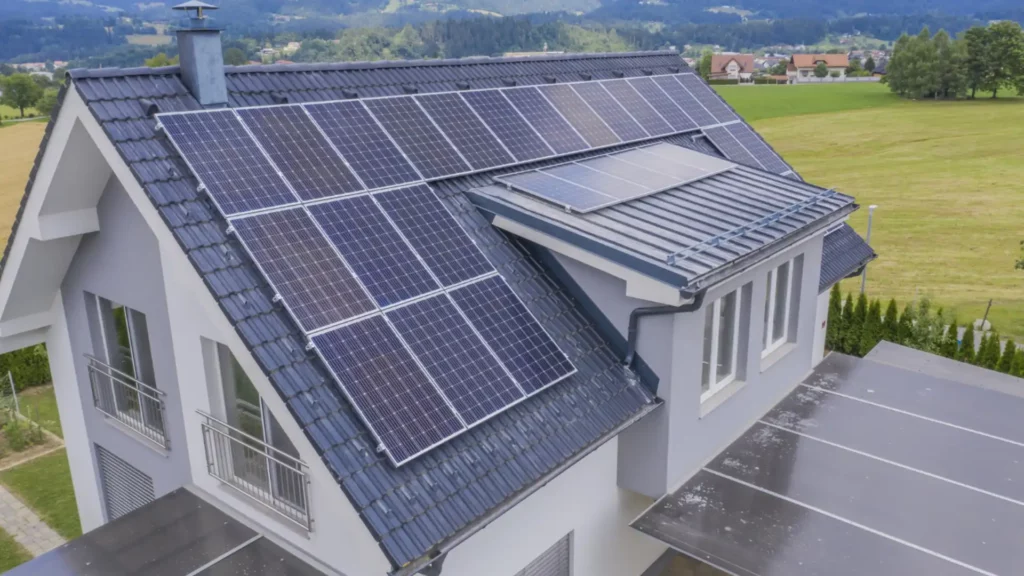
Sunmac Solar Panels Pioneering Innovation
Sunmac solar panels are renowned for their innovative and reliable solar energy solutions. With cutting-edge technology and exceptional performance, they have carved a niche in the market.
Sunmac offers diverse solar panels for residential, commercial, and industrial customers, guaranteeing maximum energy production and long-term durability.
As the demand for clean energy grows, Sunmac remains at the forefront, shaping the future of solar power.
Choosing the Right 370 watt solar panels for Your Needs
Selecting the ideal 370 watt solar panels for your specific requirements involves careful consideration of various factors, including performance metrics, quality standards, warranty coverage, and manufacturer reputation.
Here are key considerations to guide you in making an informed decision:
- Quality and Reliability: Choose solar panels from trusted manufacturers with a history of producing reliable products. Seek certifications like IEC and UL to ensure adherence to quality and safety standards.
- Efficiency: All 370 watt solar panels have the same wattage rating, but their efficiency levels can differ. Higher efficiency panels are best for limited roof space or shaded areas. Compare panel efficiency to maximize energy production potential.
- Durability and Warranty: Evaluate 370 watt solar panels for durability and warranty, ensuring reliability and peace of mind. Seek strong construction, weather-resistant materials, and extended warranties for defects, performance degradation, and other issues over the panel's lifespan.
- Technology and Innovation: Learn about solar panel advancements and features like PERC cells, bifacial design, and anti-reflective coatings that boost energy capture.
- Aesthetics and Design: When selecting solar panels for homes or buildings, prioritize the visual aspect by opting for 370W panels with attractive, low-profile designs and neutral colors that blend well with the architecture.
- Compatibility with System Components: Ensure compatibility between solar panels and other system components. Choose panels that integrate well with existing or planned components for optimal performance and reliability.
- Cost and Value: Assess the cost-effectiveness and value of 370 W solar panels, considering upfront costs, energy bill savings, incentives or rebates, and ROI. Weigh upfront investment against performance and durability for an informed choice.
- Reviews and Recommendations: Research customer reviews, testimonials, and recommendations from industry experts or trusted sources to gain insights into the real-world performance and user experiences of different 370 W solar panels. Pay attention to factors such as installation experience, customer support, and satisfaction levels.
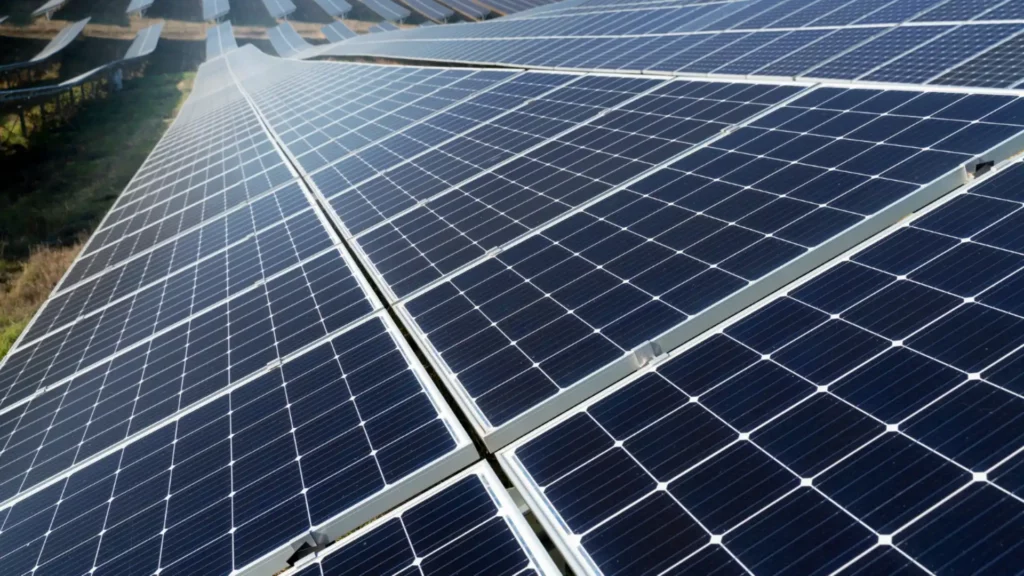
FAQs (Frequently Asked Questions) About 370W Solar Panels
What does the “370W” rating of a solar panel mean?
The “370W” rating of a solar panel refers to its power output under standard test conditions (STC). It indicates the maximum amount of electricity the panel can generate when exposed to optimal sunlight and operating at peak efficiency.
How do 370 W solar panels compare to lower-rated alternatives in terms of energy production?
Compared to lower-rated alternatives, such as 300W or 320W panels, 370 W solar panels offer higher energy production per panel. This means they can generate more electricity over the same area, making them ideal for installations where space is limited.
Are 370 W solar panels suitable for residential use?
Yes, 370 W solar panels are suitable for residential use, especially in homes with limited roof space or high energy consumption requirements. Their higher wattage allows homeowners to maximize energy production and offset utility bills effectively.
Do 370 W solar panels require special inverters or mounting systems?
While 370 W solar panels may require inverters capable of handling their increased power output, they typically do not necessitate specialized mounting systems. However, it's essential to consult with a qualified solar installer to ensure compatibility with existing infrastructure.
What factors should I consider when choosing between different wattage solar panels?
When selecting between different wattage solar panels, consider factors such as available roof space, energy consumption needs, budget, and desired system performance. Higher wattage panels offer greater energy production but may require more significant upfront investment.
Can 370 W solar panels be installed in areas with limited sunlight?
While solar panels perform best in regions with abundant sunlight, 370W panels can still generate electricity in areas with less sunlight. However, the overall energy production may be lower, emphasizing the importance of optimizing installation angles and minimizing shading.
Are there any incentives or rebates available for installing 370 W solar panels?
Depending on your location, there may be various incentives, rebates, and tax credits available for installing solar panels, including 370W variants. These incentives can significantly reduce the upfront cost of solar installation and improve the overall return on investment.
What maintenance is required for 370W solar panels?
Regular maintenance for 370W solar panels typically includes periodic cleaning to remove dirt and debris, visual inspections for damage or degradation, and monitoring energy production to ensure optimal performance. It's also essential to follow manufacturer guidelines and recommendations for long-term reliability.
How long do 370W solar panels last?
370W solar panels are designed to withstand harsh environmental conditions and typically come with warranties ranging from 25 to 30 years. With proper maintenance and care, they can continue to generate electricity efficiently for decades, contributing to long-term energy savings and sustainability.
Can I expand my solar system with additional 370W panels in the future?
Yes, most solar systems are designed with scalability in mind, allowing homeowners to expand their installations with additional panels as needed. However, it's essential to ensure that the existing infrastructure, such as inverters and mounting systems, can accommodate the increased capacity effectively.
370 W solar panels Conclusion
In conclusion, 370 W solar panels represent a significant advancement in solar technology, offering enhanced energy production, improved efficiency, and space optimization for residential and commercial applications.
Their benefits extend beyond cost-effectiveness to encompass environmental sustainability and energy independence.
However, successful integration and utilization of these panels require careful planning, professional installation, and ongoing maintenance. By harnessing the power of 370 solar panel, we can accelerate the transition to a cleaner, greener energy future.
Source
https://www.energy.gov/energysaver/benefits-residential-solar-electricity

